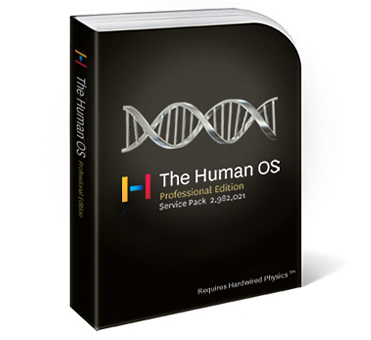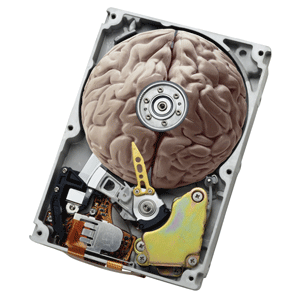I’ve done counseling and coaching with many people in the tech sector. Over time, I’ve developed a number of technology and computing analogies to help these folks get a handle on their thought processes and better understand why they act the way they do, especially in their personal relationships. But, this is not just for programmers. I think these technology and computing analogies are useful for all of us.
 For example, it’s helpful to think of our mind or psyche as having an overarching “operating system” with cognitive “programs” and “subroutines” that guide how we think about ourselves, code threats and opportunities, and perform in various settings. Luckily, for most of us, our psychological hardware and software is up-to-date. We can assume we are using the newest version of our operating system, and acting as our most mature and highly functioning self, at least most of the time.
For example, it’s helpful to think of our mind or psyche as having an overarching “operating system” with cognitive “programs” and “subroutines” that guide how we think about ourselves, code threats and opportunities, and perform in various settings. Luckily, for most of us, our psychological hardware and software is up-to-date. We can assume we are using the newest version of our operating system, and acting as our most mature and highly functioning self, at least most of the time.
But, unlike a physical computer, we can’t “swipe out our hard disk” for a new one or “wipe our disk clean” of old software. Instead, we carry within us all the legacy “operating systems” and psychological programs we have ever had, since infancy. The best we can do is recognize our old systems and programs—our earlier ways of being and relating—and understand how they might still influence us at times.
When we lose our temper because someone has “pushed our buttons,” or we develop imposter syndrome and start to doubt ourselves, or we withdraw when someone reaches out to us, or we seem to repeat the same relationship patterns, it’s likely an old psychological program has been activated.
On the positive side, if you are lucky enough to have had a loving and stable family or at least a basically supportive background, you’re likely to have solid or serviceable identity and relationship programs that are good enough to last your whole life. Indeed, you can probably trace your best ways of being to specific “coding” you received from family, community, teachers and mentors.
It’s also the case that most of us harbor some older psychological programs that are outdated, or even frankly dysfunctional. If you were neglected, or experienced a loss or trauma, you must contend with older programs that may have helped you to survive in those past situations, but now limit you and get in the way of your full and healthy functioning in the present day. Even relatively healthy psychological programs from our past can become ineffectual when we move into a new phase of life or into a new class or culture.
 On one level, the image of a “psychological hard drive” is a metaphor—our psyches are like a computer with an operating system. But, this idea is also literally true. Our brains are shaped by our experiences, our cultural conditioning, and our genetics. We do carry old mental maps and behavioral scripts that are encoded in our neurons and in our bodies and that guide our behavior. Arguably, anyone who undertakes personal growth work of any kind is working on updating operating systems.
On one level, the image of a “psychological hard drive” is a metaphor—our psyches are like a computer with an operating system. But, this idea is also literally true. Our brains are shaped by our experiences, our cultural conditioning, and our genetics. We do carry old mental maps and behavioral scripts that are encoded in our neurons and in our bodies and that guide our behavior. Arguably, anyone who undertakes personal growth work of any kind is working on updating operating systems.
My clients usually find this operating system idea easy to grasp and then they run with it, creating new insights (and programs) along the way. For some clients, the operating system idea is a wake-up call. Their consciousness has been raised about themselves and they finally have a framework to address longstanding issues that have plagued them. Others have an “ah-ha moment” when they realize that a confusing problem is just the result of a benign but outmoded schema that is operating. Others find it helpful to explicitly honor the old ways of being that kept them alive and to respectfully lay them to rest. Some go so far as to want to “delete” old programs altogether. And some folks realize that they have a lot of positive experiences to be thankful for and that they need to work on trusting their operating system and using their gifts.
What about your psychological operating system? Can you think of a time recently when you were able to a call on a new and healthy program? Or a time when circumstances activated an older and unhealthy program?
If you’d like to debug some of your own programming, give me a shout.

